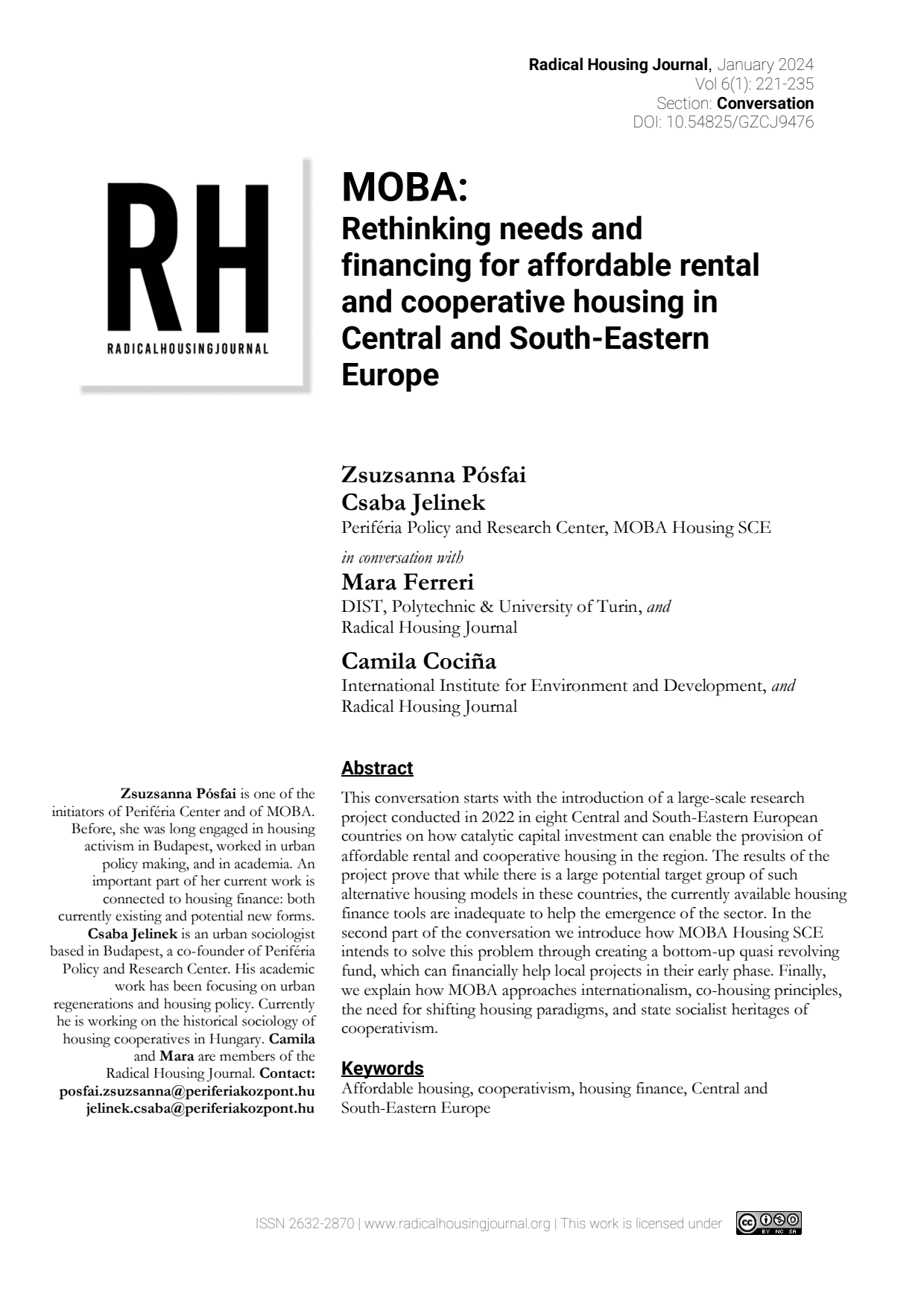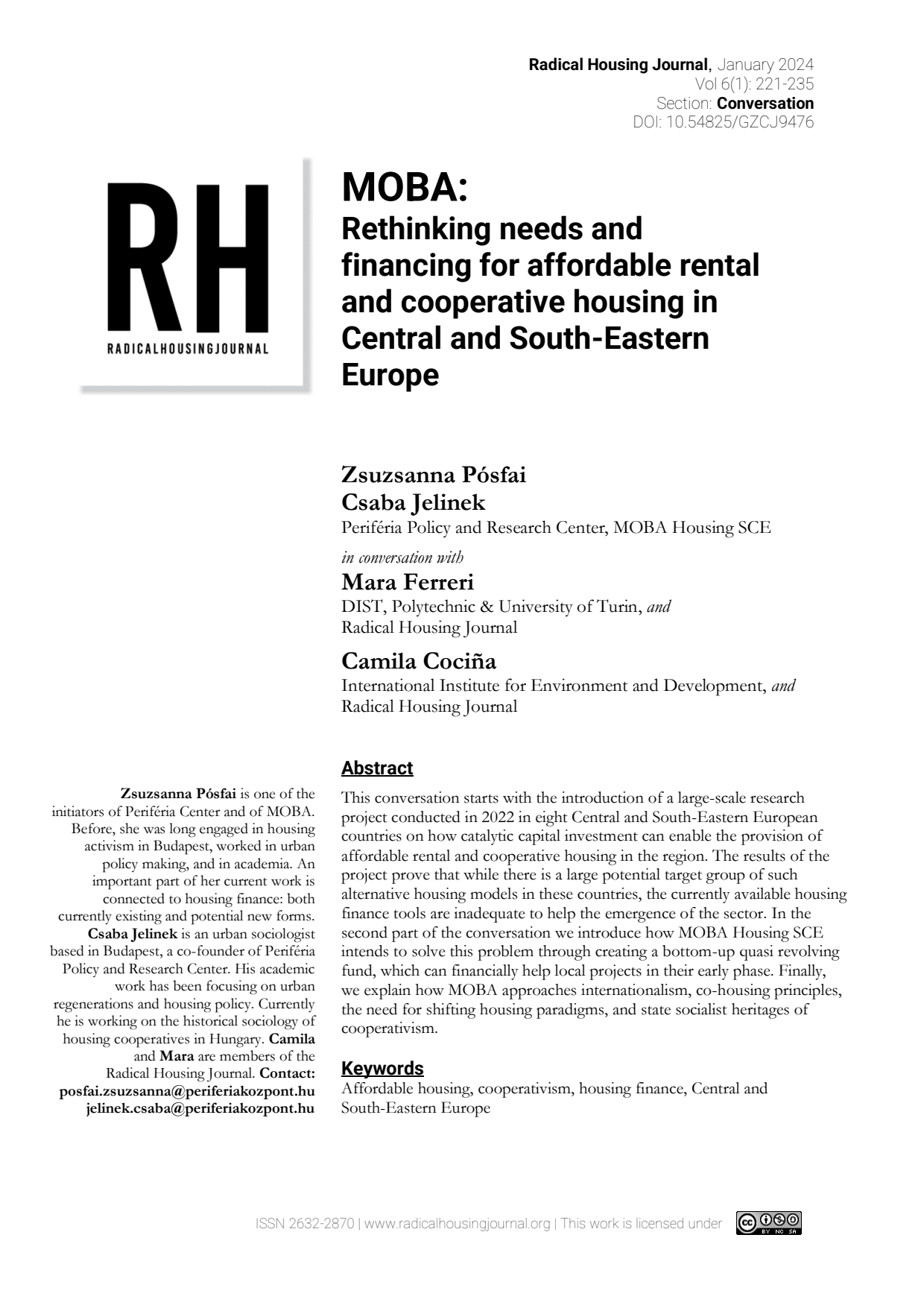AI-Generated Summary
The document titled "Rethinking needs and financing for affordable rental and cooperative housing in Central and South-Eastern Europe" is a conversation featuring Zsuzsanna Pósfai and Csaba Jelinek from the Periféria Policy and Research Center, along with Mara Ferreri from the Polytechnic University of Turin. It was published in the Radical Housing Journal, focusing on a research project conducted across eight Central and South-Eastern European (CSEE) countries. The aim was to explore how catalytic capital investment can enhance affordable rental and cooperative housing in the region.
Context and Challenges
The CSEE region has a predominant 'super' homeownership model, with over 90% of housing stock owner-occupied. This market structure limits flexibility and fails to address the needs of households who cannot afford homeownership. Surveys in four capital cities revealed that more than half of the population desires changes in their housing situation, with 13% to 26% open to affordable rental and cooperative housing models. Current housing finance products are inadequate, focusing mainly on individual mortgages, which are often inaccessible to many social groups.
MOBA's Innovative Approach
MOBA Housing SCE aims to tackle these challenges by establishing a bottom-up quasi-revolving fund to support local housing initiatives in their early phases. This fund would serve as catalytic capital to bridge the financing gap until more traditional lenders can provide suitable financial products. MOBA emphasizes international collaboration and draws on state socialist traditions of cooperativism to promote collective ownership models that prioritize affordability.
Key Findings from Research
The research data indicate significant challenges, including inadequate access to financing, insufficient regulatory frameworks, and limited organizational capacities. The region faces escalating housing inequalities exacerbated by high inflation and energy crises. The study stresses the need for diversification in housing tenure beyond individual ownership to include rental and cooperative models.
Future Directions and Collaborative Efforts
MOBA is developing the "MOBA Accelerator," a transnational revolving fund designed to provide bridge loans for project development. This initiative aims to attract international support and resources from larger cooperative networks. The discussion underscores the urgency of addressing systemic challenges in housing markets, urging a shift from the current homeownership-centric model towards more inclusive alternatives.
Demand for Alternative Housing Models
Surveys show a substantial demand for affordable rental and cooperative housing, indicating that individual homeownership is not the only viable solution sought by residents. The high number of households expressing a desire to change their housing situation affirms the need for new housing models that can adapt to shifting demographics and housing needs.
Conclusion
The document presents a thorough analysis of the potential for alternative housing models in Central and South-Eastern Europe. It highlights the necessity for innovative financial solutions and international cooperation to counteract systemic issues within the region's housing markets. The aim is to establish a sustainable and equitable housing sector that meets the diverse needs of the population, moving away from exclusivity in homeownership to embrace a more community-oriented approach to housing. The Radical Housing Journal publishes research and discussions aimed at advancing understanding and solutions for affordable housing across Europe, reflecting the urgent need for reform and innovation in this critical area.

